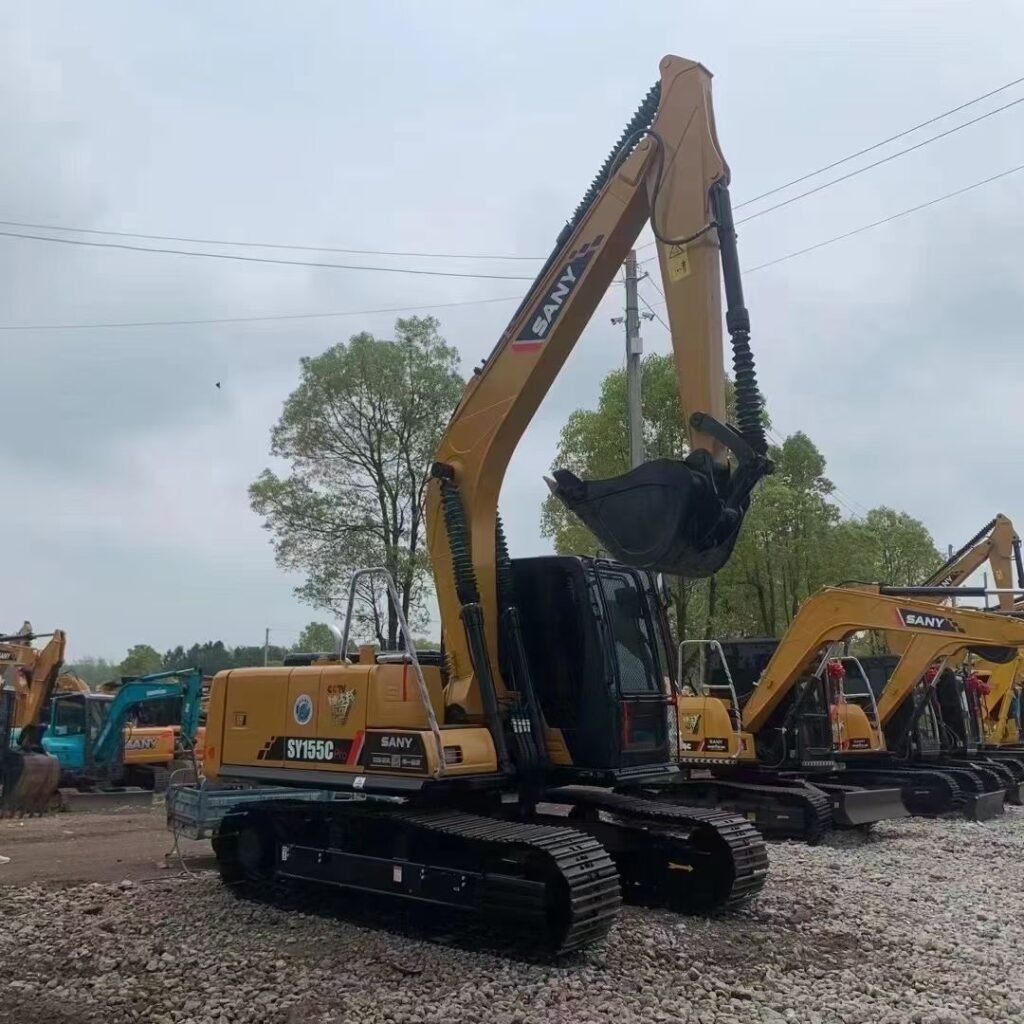I. Introduction
- Background
- In construction and engineering projects, excavators are essential equipment responsible for earthmoving, foundational work, and resource extraction. The performance and reliability of excavators directly impact the progress and quality of projects. Therefore, selecting the right supplier is crucial. A reputable supplier can not only provide high-quality equipment but also ensure timely after-sales service and technical support, laying a solid foundation for the long-term development of a business. As market competition intensifies, companies must pay closer attention to supplier selection to maintain their competitive edge in a challenging environment.
- Objective
- This article aims to provide systematic guidance to help companies comprehensively assess the reputation and experience of excavator suppliers, ensuring the procurement of high-quality equipment. By collaborating with reputable suppliers, businesses can enhance project efficiency and economic benefits. By establishing clear evaluation criteria and selection processes, companies can effectively reduce procurement risks and ensure successful project execution.
II. Definition of Supplier Reputation
- Meaning of Supplier Reputation
- Supplier reputation refers to the positive standing a supplier builds in the market through the provision of high-quality products and services. The components of reputation include customer evaluations, industry standing, compliance records, and after-sales service quality. Reputable suppliers typically stand out in competition, gaining the trust and support of more customers. Reputation is not only part of a company’s brand image but also a key reflection of its market competitiveness.
- Impact of Reputation on Business
- A supplier’s reputation directly influences a company’s purchasing decisions. For instance, reputable suppliers can ensure the quality and reliability of equipment, thereby reducing failure rates and maintenance costs. Additionally, selecting a highly reputable supplier helps businesses establish a good image in the market, enhances customer trust, and further drives business growth. Suppliers with strong reputations may also offer more favorable conditions in terms of pricing, service, and delivery times, improving overall operational efficiency.
III. Evaluating Supplier Experience
- Importance of Experience
- A supplier’s industry experience plays a vital role in equipment quality and after-sales service. Experienced suppliers typically have a deeper understanding of market demands, technological updates, and changes in customer needs, enabling them to provide products and services that better meet client requirements. When selecting suppliers, companies should prioritize those with a proven track record and extensive experience in the industry to ensure they can meet specific project demands.
- Evaluation Criteria
- Companies can use the following criteria to assess supplier experience:
- Years of Industry Experience: Understanding how long the supplier has been in the industry; generally, the more experience, the higher the technical level and service quality.
- Past Project Cases: Reviewing the supplier’s previous project cases to assess their performance and customer satisfaction in similar projects. Companies can request detailed information about relevant projects for in-depth analysis.
- Client Base and Market Positioning: Analyzing the supplier’s client base, particularly whether they have similar clients in the same industry, to understand their market positioning and influence. Experience with similar industry clients can provide suppliers with better insights and solutions.
- Companies can use the following criteria to assess supplier experience:
IV. Methods for Evaluating Supplier Reputation
- Customer Feedback
- Customer evaluations and feedback are crucial for assessing supplier reputation. Companies can gather genuine feedback through online reviews, social media, and industry forums. Additionally, direct contact with existing customers can provide insights into their experiences and satisfaction with the supplier’s service. Collecting feedback from multiple channels allows for a comprehensive understanding of a supplier’s strengths and weaknesses, aiding in informed decision-making.
- Industry Certifications and Awards
- Industry certifications and awards obtained by suppliers often reflect their reputation and professional capabilities. Companies should pay attention to whether suppliers hold ISO certifications, membership in industry associations, etc., as these qualifications can indicate a supplier’s professional level and market recognition. Certifications and awards not only acknowledge supplier capabilities but also serve as proof of their good reputation within the industry.
- Financial Health Status
- Assessing the financial health of suppliers is a critical factor in ensuring their long-term cooperation capabilities. Companies can review suppliers’ financial reports, credit ratings, and market performance to understand their financial stability and ensure that service delivery is not compromised by financial issues. Financially stable suppliers can maintain operational capabilities during market fluctuations, ensuring timely delivery and ongoing service.

V. Establishing Long-Term Collaborative Relationships
- Importance of Collaboration
- Building long-term relationships with reputable suppliers helps ensure the quality of equipment and the continuity of after-sales service. Long-term partnerships can reduce procurement costs and provide more advantages and conveniences in terms of technical support and service response. Collaborating with high-quality suppliers can offer businesses better technical support and training opportunities, helping them achieve higher efficiency in equipment usage.
- Communication and Trust
- Effective communication and a trusting relationship between businesses and suppliers are fundamental to successful collaboration. Companies should establish regular communication mechanisms, promptly addressing issues and needs during usage to ensure continuous optimization and improvement in their partnership. Through transparent communication, businesses can stay informed about suppliers’ production capabilities, delivery schedules, and market dynamics, allowing for better project planning and resource allocation.
VI. Conclusion
- Summary
- Choosing experienced and reputable suppliers is key to ensuring excavator quality and long-term reliability. Reputable suppliers can provide high-quality products and also offer guarantees in after-sales service and technical support, laying the groundwork for project success. By establishing systematic evaluation processes, companies can more effectively select suitable suppliers and mitigate procurement risks.
- Call to Action
- Companies are encouraged to thoroughly evaluate the reputation and experience of suppliers when procuring excavators, establishing strong collaborative relationships to ensure efficient equipment usage and smooth project execution. Businesses should actively conduct market research, gather relevant information about suppliers, and engage in proactive communication with potential suppliers to make informed purchasing decisions. By selecting outstanding suppliers, companies can gain advantages in competition and achieve sustainable development. Furthermore, it is recommended that companies periodically assess the performance of their collaborating suppliers to maintain alignment with market demands and ensure the effectiveness and stability of long-term partnerships.



